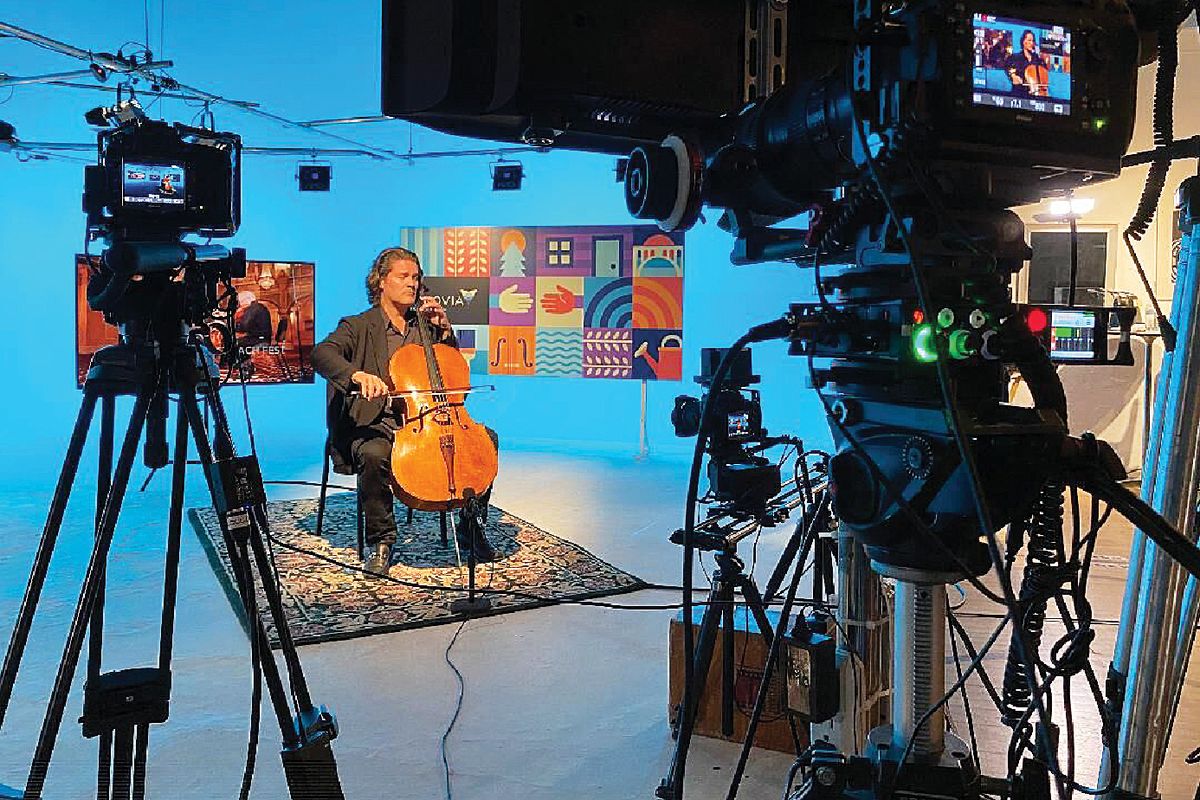Zuill Bailey makes it deeply personal performing Bach at Barrister Winery

One of the most remarkable concerts, or perhaps I should say “gatherings,” in the history of Spokane’s musical community took place Saturday night at Barrister Winery when Zuill Bailey played the Six Suites for Solo Cello of J.S. Bach.
It was billed as the inauguration of a new season for Northwest BachFest, of which Bailey is the artistic director, and began as simply the most recent in a series of concerts offered in the same venue since Bailey assumed leadership of the festival 10 years ago.
The setup was conventional enough: There was a platform on which Bailey sat and played his cello while an audience, much reduced by COVID-19 precautions, was arrayed before him. Bailey mounted the platform with his magnificent Gofriller cello of 1695 and began to speak.
He spoke in personal terms of a deep depression that had come over him in March 2020, depriving him not only of his desire to perform music, but also his interest in and enthusiasm for anything in life.
Bailey went on to explain how he gradually came to realize there was value in his solitude, as it allowed him to realize how much “noise” he had allowed to enter into his life, distracting him from his commitments to the people who most mattered to him and from his mission as an artist.
At last, he picked up the cello, as though for the first time. Not surprisingly, the first notes he permitted himself to play were those of the Prelude to the First Suite for Solo Cello in G major by Bach.
Any thought that I might have exaggerated the impact of Bailey’s remarks on the audience was dispelled at the midpoint of the evening, when, after completing his performance of the Third Suite, Bailey asked for questions.
A woman spoke up, relating an incident in which she attended an impromptu performance by Bailey at Riverpark Square. She was deeply ill as the result of treatment for a serious illness but felt impelled to take a seat to hear what was announced as a brief performance of a movement or two from Bach’s First Suite.
With wonder in her voice, she went on to relate how Bailey closed his eyes to focus on the music, but that, before he began to play, a shaft of light through the huge window that fronts the building illuminated the seated cellist, who began to play not the First but the Sixth and last Suite and never stopped until, two hours later, he had played the entire series – in reverse order!
As she described it, the experience so inspired her that she drew on new sources of strength to overcome her illness. “So, this is my question,” she continued. “What happened then? What came over you?” Bailey thought for a moment and then answered, “Well, apparently I had to be there for you.” The audience gasped.
Throughout the evening, Bailey connected the importance of the Bach Suites in his own life to role they played in Bach’s own development by describing each six-movement work as a step in the composer’s exploration of the instrument’s capacity for expression. He takes the First Suite as an innocent display of pleasant melodies. In the Second, Bach journeys into darker, deeper waters and more complex, turbulent feelings.
In the Third Suite, Bailey sees Bach testing the cello’s ability to equal the organ, Bach’s principal performing instrument, in expressing denser, contrapuntal invention and in conveying feelings of grandeur and magnificence, and so on, to the Shakespearean richness and variety of the Sixth Suite.
Bailey’s earlier approach to playing the Bach Suites is beautifully documented in a celebrated recording made 10 years ago when he first accepted the position of artistic director of Northwest BachFest.
If Saturday night was any indication, the events of the past year have made a significant difference in that approach. We will be able to find out for sure in the series of high-definition recordings he just completed that will be released in June. He repeated the feat of performing all six suites to a sold-out house on Sunday night.